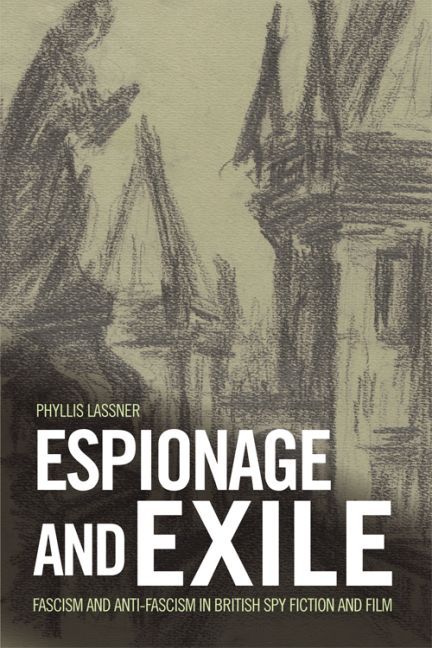Book contents
1 - Eric Ambler: Espionage Chronicler of the 1930s
Published online by Cambridge University Press: 12 September 2017
Summary
In the 1951 ‘Footnote’ to a reprint of his 1938 novel Epitaph for a Spy, Eric Ambler affirms the staying power of espionage as an institution and as a story:
Longer before Moses sent spies into Canaan […] and Joshua's agents were hidden by Rahab in Jericho, the Sumerian rulers of Mesopotamia, who flourished a thousand years or so before the traditional date of Adam, were sending out undercover operators to bedevil their opponents. There seems, in fact, to have been no period in recorded history during which secret agents have not played a part in political and military affairs. (261)
Although this epic history suggests normative statecraft and a popular cultural tradition, Ambler wants no part of either. Instead of aligning his own espionage stories with heroic tales of undercover operations, Ambler's novels of the 1930s ‘bedevil’ these tales by dramatising the question of how espionage fiction can represent and analyse recorded and undocumented political history. For Ambler, the ‘political and military affairs’ that shaped this crisis-filled decade exerted pressure on the genre to reject allegorical universalising. Instead he would revise the thriller's conventional forms to situate Britain's responses to the rise of European Fascism as the historically specific but speculative fulcrum of his plots. His method would emphasise the visual, including the mechanisms of photography, the ambiguous materiality of photographs and literary evocations of German Expressionist film.
Debunking the trajectory of his aesthetic influences, Ambler mocks his first efforts at playwriting ‘in the manner of Ernst Toller’, as having ‘nothing to commend it except a plot; and that was probably stolen from another source’ (Here Lies, 102). Yet his spy novels of the 1930s resound with Toller's mordant German Expressionism. Despite his focus on the historical moment and use of extensive graphic detail, Ambler offers no stylistic gestures towards mimesis or verisimilitude.
His aesthetic choice may be explained in part by his early career as a playwright when he
was all for thinking of the theatre as a place in which to reveal ‘the inner beauty and the meaning of life’, [but] I could not bring myself to believe that Gordon Craig's ‘total’ theatre was going to reveal anything but handsome set designs.
- Type
- Chapter
- Information
- Espionage and ExileFascism and Anti-Fascism in British Spy Fiction and Film, pp. 16 - 68Publisher: Edinburgh University PressPrint publication year: 2016



